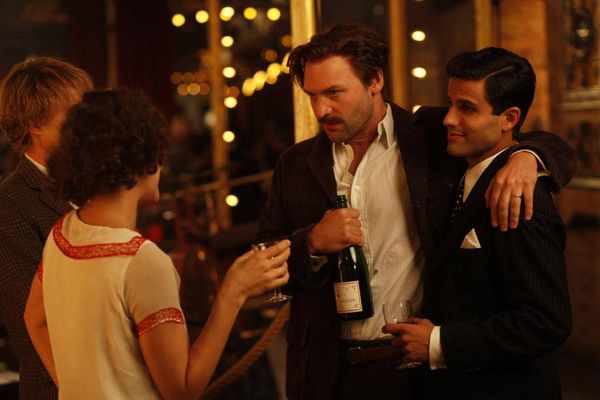Eye For Film >> Movies >> Midnight Movies: From The Margin To The Mainstream (2005) Film Review
Midnight Movies: From The Margin To The Mainstream
Reviewed by: Anton Bitel

If, more than any other decade, our own Noughties have subjected the cinema of the Seventies to exhaustive dissection, obsessive refraction and endless reduplication, then the responsibility lies largely with both Peter Biskind and the vagaries of history.
Biskind set the ball rolling in 1998 with the publication of his Easy Riders, Raging Bulls, a sensational and often scurrilous account of how a group of young maverick directors in the Seventies transformed America's conservative studio system, before themselves imploding in a haze of drug-taking, madness and unbridled egoism. The book's winning combination of hard analysis and bitchy gossip made a whole new generation hip to some of America's most challenging and adventurous films - and in the meantime an unjust war, an untrustworthy president, an oil crisis, a renewed threat of global terrorism, and the end of ten years' worth of optimism, have ensured that the dreams and anxieties which resonated throughout the Seventies have returned to haunt our own decade.

Accordingly, the cinema of the last five years has been in total thrall to the Seventies. Each week sees the release of yet another indie director's attempts to recapture the particular nobody-to-root-for, no-happy-ending sensibility of that decade's dramas, while there is hardly a single horror movie from the period that has been left without a Noughties 'reimagining', and Quentin Tarantino has taken it upon himself to pay hyperactive homage to just about every drive-in movie and grindhouse flick of the time. Even Biskind's book became a feature-length documentary in 2003.
So, at a time when seemingly everyone loves the Seventies, there can be no doubting the opportunism involved in Stuart Samuels' decision to turn his little-known book Midnight Movies: From The Margin To The Mainstream, first published in 1983, into a documentary of the same name. Yet time has been good to Samuels' book - for while in its day it suffered the misfortune of being eclipsed by the similar (and similarly titled) Midnight Movies, published also in 1983 by the film critics Jim Hoberman and Jonathan Rosenbaum, the subsequent quarter of a century has only served to strengthen Samuels' paradoxical thesis that these 'outsider' films had a profound influence on the development of more conventional cinema. After all, George A Romero, John Waters and David Lynch, who all cut their teeth on the midnight circuit, have now become household names whose subsequent films have been screened around the clock in multiplexes.
Like his book, Samuels' film focuses on six of the most successful midnight movies: Alejandro Jodorowsky's El Topo (1970), Waters' Pink Flamingos (1972), Romero's Night Of The Living Dead (1968), Perry Henzell's The Harder They Come (1972), Richard O'Brien's Rocky Horror Picture Show (1977) and Lynch's Eraserhead (1977). All six films were initially reviled by critics, and had failed entirely to find an audience (and in some cases even a distributor), until some rather enterprising theatre managers, starting with The Elgin's Ben Barenholtz, decided to screen them in a midnight slot with little publicity. There, word of mouth alone would build for these films a cult following among disaffected students, drug users and "insomniac ironists", to the point where Rocky Horror Picture Show, initially deemed a flop by Fox, would go on to make US$175 million and cover the studio's annual overheads for years afterwards.
Samuels' film both contextualises and celebrates these strange slices of subversive counter-culture, through interviews with their single-minded directors, with the theatre managers and distributors who screened them, and with their devoted fans (including Sal Piro, who claims to have seen Rocky Horror Picture Show about three thousand times) - and as if to show that he bears no ill will towards his publishing rivals, Samuels has also co-opted Hoberman and Rosenbaum (along with Roger Ebert) for some critical perspective. The result is an engaging, articulate documentary that not only uncovers a whole lost subculture of the Seventies, but also charts America's first encounters with cult cinema, postmodern irony, gross-out humour and (in the case of The Harder They Come) reggae.
And, most importantly of all, it will leave you wanting to see the films it eulogises all over again...
Reviewed on: 20 Mar 2007

















